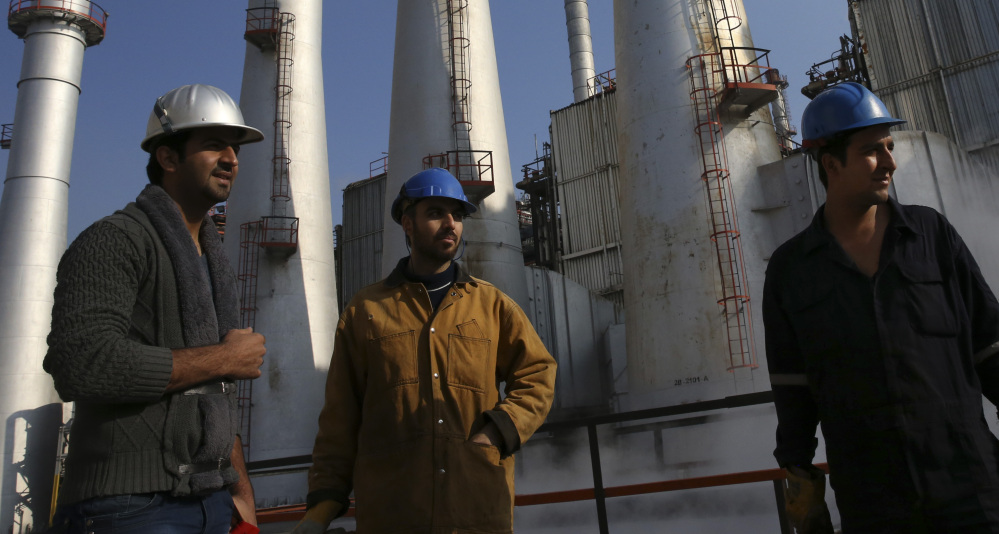DUBAI, United Arab Emirates — Across a Mideast fueled by oil production, low global prices have some countries running on empty and scrambling to cover shortfalls, even as more regional crude is on tap to enter the market.
While some Gulf nations rest on ample reserve funds, embattled Iraq is desperate to scrounge up more money for its fight against the extremist Islamic State group as protesters demand repairs to its failing power grid. Contrast that to neighboring Iran, whose nuclear deal with world powers positions it to re-enter the global oil market and make long-needed repairs to its fields to increase its daily production.
The possibility of more supply entering the market has analysts already lowering their forecast price for oil into the next year. And even if the price rises, industry experts say U.S. production quickly could ramp up and keep prices low for years to come, challenging the power of OPEC.
“There’s almost no way that OPEC can get the band back together,” said Greg Priddy, the director for global energy and natural resources at the Eurasia Group. “You can’t get prices rapidly back up … because you’d get runaway growth in the U.S.”
Fluctuating oil prices are nothing new to the Mideast. Countries like the United Arab Emirates, Qatar and Kuwait have large cash reserves to cushion the blow. Many in the Gulf also have diversified their economies.
But even those with significant reserves could see new exploration halted in their countries. In January, Royal Dutch Shell PLC announced it would halt a planned petrochemicals project in Qatar, which would have been owned 80 percent by state-run Qatar Petroleum and 20 percent by Shell. It blamed falling energy prices.
Despite the price downturn, oil-powerhouse Saudi Arabia declined to lower its production and continues its extensive subsidy programs. It still has billions of dollars in reserves it can burn through, even as it conducts a costly war in neighboring Yemen.
For Iraq, which lost about a third of its territory to the Islamic State group last year, things are much more serious as oil revenue accounts for nearly 95 percent of all government spending.
“Iraq is facing a double shock arising from the ISIS insurgency and the plunge in global oil prices,” the International Monetary Fund wrote in August. “The risks remain very high, emanating from an extension of the conflict, political tensions, weak policy implementation and further shocks from oil markets.”
In neighboring Iran, the Islamic Republic is preparing for economic sanctions to be lifted as part of a deal with world powers in exchange for limiting its nuclear program. Analysts estimate Iran has as much as 30 million barrels of oil ready to enter the market in floating storage. Experts say it could add upward of 4 million barrels of oil a day to global production.
“Absent a rise in global demand, an increase in supply of this magnitude would inevitably depress prices,” ratings agency Moody’s Investors Service said in July.
Another wild card is Libya. Oil production fell dramatically in the 2011 civil war. A possible peace deal could see production ramp back up to as much as 1 million barrels of crude oil a day.
Send questions/comments to the editors.



Success. Please wait for the page to reload. If the page does not reload within 5 seconds, please refresh the page.
Enter your email and password to access comments.
Hi, to comment on stories you must . This profile is in addition to your subscription and website login.
Already have a commenting profile? .
Invalid username/password.
Please check your email to confirm and complete your registration.
Only subscribers are eligible to post comments. Please subscribe or login first for digital access. Here’s why.
Use the form below to reset your password. When you've submitted your account email, we will send an email with a reset code.